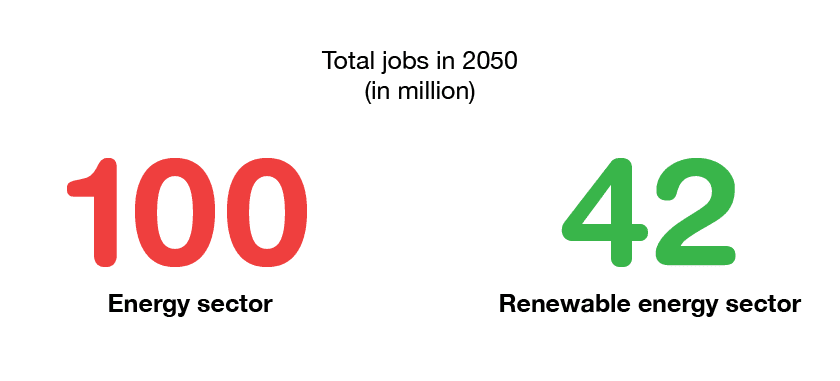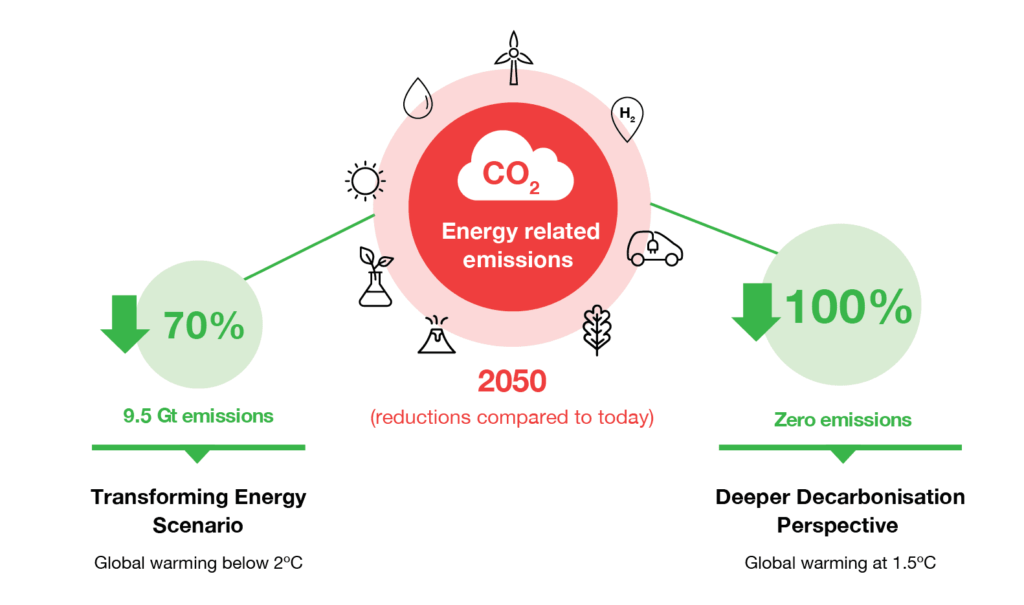Q&a With Elizabeth Press
Director for Planning and Programming at the International Renewable Energy Agency (IRENA), Elizabeth Press, provides her take on renewables in the current COVID-19 crisis and contextualizes key findings from IRENA’s Global Renewables Outlook, which shows the gains to be had by transforming the energy system in an inclusive manner.
Do you believe climate policies are taking the backseat due to the COVID-19 crisis?
The COVID-19 crisis does not change the existential path required to decarbonize our societies and meet sustainability goals. The immediate priority is understandably for people’s health and safety, and the security of their livelihoods, but green stimulus and recovery packages are feasible and necessary to avoid the type of social and economic catastrophe that climate change threatens.
The long-term planning and positive momentum that exists in the global energy transformation mean that the renewables and energy transitions trends will continue. Today, renewables account for 1/3 of global power capacity and annual capacity additions from renewables are regularly outpacing those from conventional fuels. Much of this change has been driven by the strong business case of renewables. And we have seen this during the past few months when renewables were the fuel of choice in the time of crisis.
While the economic downturn will inevitably affect the renewables sector, impacts will be smaller than on other industries because of these strong foundations. Fundamentally, governments must look to renewables as a recovery choice for long-term resilience of economies and societies. IRENA’s Global Renewables Outlook outlines pathways for a global energy transformation based on renewable energy by 2050. The report highlights the importance of aligning short-term recovery efforts with the medium-and long-term objectives of the Paris Agreement and the UN Sustainable Development Agenda.
What is the role of renewables in achieving global climate goals of the Paris Agreement?
Energy-related CO2 emissions have risen by 1% every year over the past decade. We are not on track to meet the Paris Agreement climate goals. While the COVID-19 crisis and oil price slump may suppress emissions in 2020, a rebound is likely to restore this long-term trend.
IRENA’s Global Renewables Outlook describes an ambitious yet realistic pathway to halt the rise of global temperatures. To keep global warming below 2°C, renewables would have to accelerate further, cutting energy-related CO2 emissions by 3.8% per year on average and 70% in total by 2050. Two-thirds of global power supply would have to come from renewables by 2050.
We are not on track to meet the Paris Agreement climate goals. Only an energy transformation driven by renewables will allow us to hold the line on rising global temperatures. A climate-safe energy transformation can cut 70% of energy-related CO2 emissions by 2050 compared to today’s levels.
Coupled with an additional deeper decarbonization consistent with holding the line at 1.5°C, emissions could decrease to zero by mid-century. The remaining emissions decrease would have to come from so-called “hard-to-decarbonize” sectors, namely heavy industry and, in the transport sector, aviation and shipping. Solutions for these sectors range from green hydrogen and synthetic fuels, direct electrification (such as electric vehicles), advanced biofuels and carbon management would play a key role.
Do you believe climate policies can stimulate economic recovery?
Absolutely, and energy must be part of the recovery measures. With the right policies in place, energy transitions can generate important social and economic benefits. A cleaner energy system is fully consistent with a net positive economic impact by delivering economic growth, jobs and higher welfare.
Indeed, renewables are an engine of low-carbon development. IRENA’s Outlook shows that transforming the energy system could lead to a higher GDP growth, achieving 2.4% more by 2050 than current plans. By 2050 the additional costs would be significantly outweighed by the benefits, with returns of $3-8 for every dollar spent.
A renewables-based energy system would also create much-needed work, especially in the context of the current crisis. IRENA is tracking renewable jobs since 2013, during which time they doubled to over 11 million in 2018. A climate-safe pathway outlined in the Global Renewables Outlook would increase renewable jobs to 42 million globally by 2050. Employment in energy efficiency would grow to 21 million, and to 15 million in grids and energy system flexibility. Overall, energy sector jobs are projected to expand, employing 100 million people by 2050 globally.
This increase is the result of gains in transition-related technologies (renewables, energy efficiency, and power grids and energy flexibility) that outweigh job losses in conventional technologies as fossil fuels and nuclear power in all regions of the world.

Where do you see the EU and how do you assess the EU’s Green Deal?
Europe is demonstrating great leadership in the pursuit of energy transitions and net-zero policies. The economic impact of an energy transformation on the European economy is above the global average. IRENA’s Outlook shows that transforming the energy system will boost the EU’s economy by 7.4% in 2050, an equivalent to an additional $2.6 trillion and $46 trillion in cumulative GDP terms. This would also translate to 5.5 million new European jobs. Solar would account for 30% of all renewable energy jobs in the EU, with wind energy as the second strongest, contributing around 25% of jobs.
IRENA’s Outlook finds that the energy transition lies at the heart of inter-linked concerns over social justice, economic inequality, and rapidly-mounting climate threats. Mobilizing significant resources in combination with increased public intervention to tackle pressing issues such as equity, justice and sustainability simultaneously and coherently will be crucial. These issues should not be siloed but need to be considered holistically if they are to be addressed effectively and efficiently. Under the banner of a “Green New Deal”, the call for a comprehensive policy approach is being taken seriously. If policy-makers recognize that we need an approach that tackles energy and climate goals hand-in-hand with socio-economic challenges, by increasing and integrating renewables globally, then there is the potential for it to deliver the transformative decarbonization of society that is needed to meet our climate goals.

